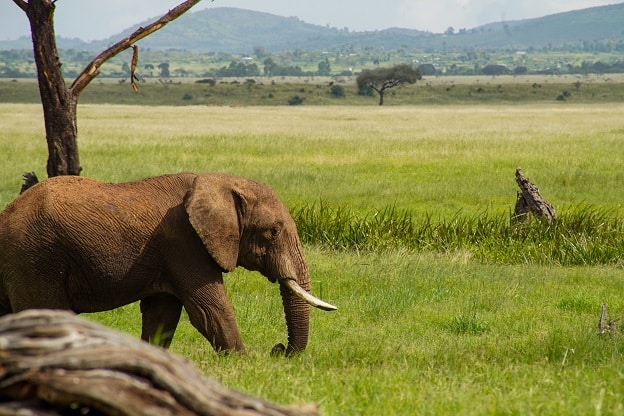Marwell Wildlife calls for robust action in light of the 2024 Living Planet Report
October 10, 2024
October 10, 2024

Conservation charity Marwell Wildlife is urging leaders to work together to halt the ongoing devastation of the natural world, following the publication of the 2024 Living Planet Report.
The report, produced by the World Wildlife Foundation (WWF) in collaboration with ZSL (Zoological Society of London), documents a staggering 73% decline in wildlife population sizes over the last 50 years.
It says that the planet is fast approaching tipping points that would be “potentially catastrophic” if current trends are allowed to continue.
Of all species types, freshwater creatures such as the white-clawed crayfish Marwell is preparing to breed at the zoo, were found to have suffered the most significant declines.
Habitat degradation is the main cause of biodiversity decline, often as a result of human food production, which the report states uses 40% of all habitable land and accounts for 70% of all water use.
Laura Read, Chief Executive of Marwell Wildlife, said: “Never before has the natural world been under such threat as a direct result of human activity.
“The release of this report from WWF provides further evidence to support that statement and we stand with all conservation organisations, charities and concerned citizens of this planet that call for robust actions to prevent further loss of wildlife, habitats and functioning ecosystems all over the world.
“All life deserves our care and protection, and at Marwell Wildlife we will continue working as hard as we can to provide it.”
The report stresses the need for huge changes in food production, energy and finance systems if conservation efforts are to succeed in reversing the decline.
It emphasises that while conservation efforts to protect and restore habitats and support indigenous people’s rights are crucial, big changes across the board are desperately needed.
Examples given within the report include moving away from fossil fuels towards renewables and the need for finance systems to redirect investments from harmful activities to sustainable nature-positive alternatives.
Marwell has always worked to champion sustainability and became the first zoo in the world to use animal poo as fuel to heat the largest buildings on the zoo estate.
In 2023 the charity announced it had officially hit carbon neutral following a programme of behavioural changes including switching to renewable energy sources, planting more trees and the creation of the zoo’s first self-sustaining building, the Energy For Life: Tropical House.
Professor Philip Riordan, Director of Conservation at Marwell Wildlife and Visiting Professor at University of Southampton, said: “The indications presented in this latest report are truly alarming.
“Having worked on assessments including with IPBES and IPCC, it is always staggering when data are brought together to reveal such urgency that cannot go unheeded.
“Conservation charities such as ours, working with partners and communities in the UK and around the world are facing the reality of these findings every day.
“We will continue to offer people options for changes in their lives that can bring positive benefits for them and the planet.
“Fundamentally we need our leaders to raise their sights and work constructively together to bring a halt to this ongoing devastation.”